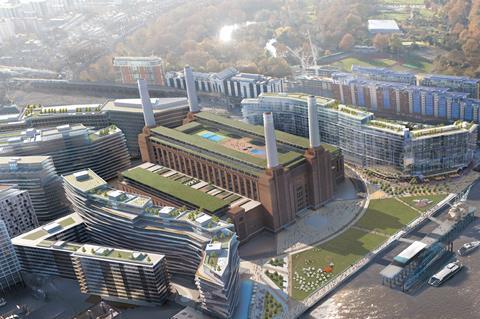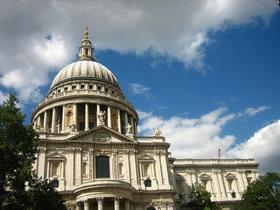Battersea developer argues Thames Tideway Tunnel’s construction programme puts entire £8bn redevelopment of power station at risk

The construction of the £4.1bn Thames ‘super-sewer’ will endanger the restoration and redevelopment of London’s iconic Battersea Power Station and make a whole tranche of apartments planned for the site “unsellable”, the power station’s developer has claimed.
In a submission to the Planning Inspectorate - which is currently considering whether to grant the super-sewer’s developer, Thames Water, permission to build the tunnel - the developer of Battersea Power Station also said the tunnel’s construction programme would endanger the funding stream for the £600m Northern Line Extension.
The submission also said the plans for a major super-sewer construction site next to a significant part of the Battersea development would damage the business case for the entire £8bn scheme.
The Battersea Power Station developer is due to be selling a mix of serviced and standard apartments as well as letting offices and a hotel that comprise phase six of the scheme, at the same time as construction at a major super-sewer site nearby is scheduled to reach its peak.
“The Thames Tideway Tunnel works will compound an already disadvantaged area of the site to the extent that it may well serve to render the properties [in phase six of the development] unsellable or at best reduce the value of the properties thus compromising the deliverability of the power station,” the submission said.
The document added that as part of the funding for the £600m Northern Line Extension was slated to be gathered through business rates from offices at the development, anything which compromised their value would also put the rail project in jeopardy.
“The introduction of major infrastructure works that will compromise views towards the river as well as the impact of noise, odour and traffic on the public, realm could render the offices unlettable, which compromises the deliverability of the power station and the funding of the Northern Line Extension,” the submission said.
A spokesperson for Thames Tideway Tunnel said the project team was “working to minimise disruption to the local residents by mitigating noise at source”.
The £400m first phase of the Battersea development comprises 866 residential units in two main blocks designed by architects Ian Simpson and de Rijke Marsh Morgan, with prices for apartments to ranging from £338,000 for a studio; from £423,000 for a one-bedroom; from £613,000 for a two-bedroom; and from £894,000 for a three-bedroom apartment.
The first phase, masterplanned by Rafael Viñoly, is being built by Carillion.
Objections to the Thames Tideway Tunnel plans
From submissions to the Planning Inspectorate
St Paul’s Church

A submission by the office of Father Paul Butler, rector of St Paul’s, said plans to carry out construction work on Saturdays and maintenance work on Sundays would disrupt weddings and Sunday mass.
It said: “Maintenance work is often noisy and disruptive even if it does not generate the same levels of noise as construction work. Moments of stillness and solemnity in the [Sunday] Mass should not be ruined by external clatter.”
It added that the church generated “significant revenue” from weddings on a Saturday and it anticipated there would be “no bookings” as work would “generate unwelcome noise at what for the couple and their guests is a day of huge importance in their lives”.
City of London
The City of London’s submission stated that it would not permit any designated areas for lorries to park within the City.
“No Lorry holding areas will be permitted in the Square Mile of the City of London as our road network will not support them,” the submission said.
It went on to say any reference to lorry holding areas in the Square Mile should be removed from tender documents given to contractors.
Thamesbank
Local campaign group Thamesbank demanded that a written agreement be reached with Thames Water that spoil and construction materials be transported by barge rather than by road.



























No comments yet